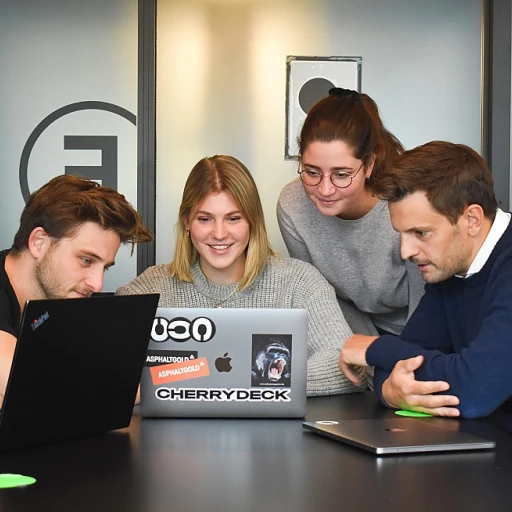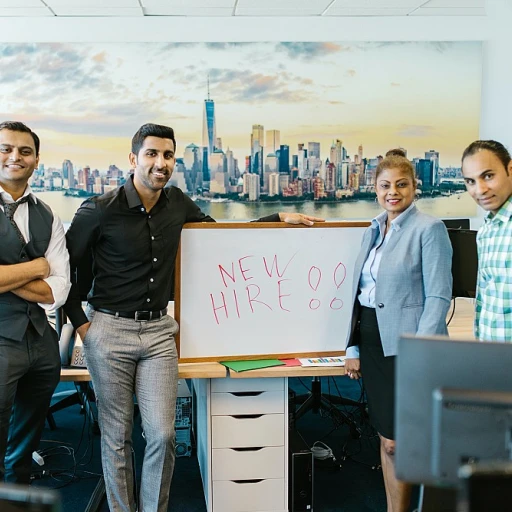Remote Work: A New Normal
Remote work: embracing flexibility in the modern workplace
The landscape of employment has undergone a profound transformation, with remote work emerging as a pivotal trend reconfiguring how we think about our professional lives. In recent years, the traditional office-centric paradigm has given way to more flexible arrangements, allowing employees to perform their roles from virtually anywhere in the world. This shift not only affects where we work but also how we collaborate, our communication patterns, and the overall company culture. Employees and employers alike have started to recognize the benefits of remote work, including increased productivity, cost savings, and the ability for companies to tap into a global talent pool. For individuals, the remote work model offers enhanced work-life balance and the flexibility to tailor work environments to personal preferences. As we continue to refine this novel approach, it becomes vital to understand its implications and how it integrates with other emerging work trends. For instance, remote work is closely intertwined with the growing trend of hybrid work models, wherein businesses combine remote and in-office work to cater to individual preferences and business needs. This flexible approach aims to maximize the benefits of remote work while maintaining the collaborative advantages of face-to-face interaction. Adapting to remote work extends beyond logistical considerations, influencing the skills required in the future workforce. Communication, digital collaboration, and self-management are becoming increasingly valuable as organizations navigate this transition. Furthermore, fostering diversity, equity, and inclusion within remote teams presents new challenges and opportunities for companies committed to building egalitarian workplaces. The technological infrastructure supporting remote work is constantly evolving, shaping the future of work through advanced collaboration tools, cloud technologies, and secure connectivity. As companies strive to maintain employee engagement and prioritize mental health, crafting a supportive and inclusive remote work culture takes center stage. Discover how remote work is shaping the future of work by visiting our detailed exploration here: remote work transformation.The Rise of Hybrid Work Models
The momentum of combining remote and office work
One cannot discuss the transition of the workplace without addressing the burgeoning hybrid work model. This approach expertly blends the convenience and flexibility of remote work with the camaraderie and structure of traditional office settings. It is clear that the hybrid model is gaining traction, becoming a dominant force in how we reshape our professional environments. As companies strive to maintain productivity while fostering employee satisfaction, hybrid setups offer a balanced solution that addresses the diverse needs of the modern workforce. Incorporating elements from the improved remote work strategies, the hybrid model allows employees to harness the best of both worlds. On one hand, staff can enjoy increased autonomy and a better work-life balance, critical components that have become quintessential to job satisfaction. On the other hand, the ability to meet face-to-face facilitates deeper collaboration and a sense of community that is often challenging to achieve online. Embracing this versatile approach requires businesses to rethink their office spaces, technological requirements, and management styles. They must ensure seamless transitions between remote and in-office work to truly harness the benefits of both environments. It's not without its challenges, as leaders must also consider how to cultivate team dynamics and equitable experiences for all employees, whether they are onsite or logging in from afar. Given the significant shifts illustrated in various driving forces shaping our labor landscape, as detailed in other sections, mastering the hybrid work model could unlock unparalleled potential. Companies that successfully navigate this terrain will likely emerge as front-runners in attracting and retaining top talent amidst changing workplace paradigms.Skills That Will Define the Future Workforce
Essential Skills for Tomorrow's Workforce
As we navigate through the evolving landscape of work, the skills that employees need are shifting dramatically. The future workforce will be defined not just by technical expertise but by a blend of skills that enhance adaptability and innovation. In a world where remote and hybrid work models are becoming the norm, the ability to communicate effectively across digital platforms is paramount. This shift emphasizes the importance of digital literacy, enabling employees to leverage technology efficiently and collaborate seamlessly with colleagues from diverse locations.
Moreover, problem-solving and critical thinking are increasingly valued, as organizations seek individuals who can navigate complex challenges with creativity and foresight. These skills empower employees to adapt to unforeseen changes and contribute to innovative solutions, which are crucial in a rapidly changing work environment.
Emotional intelligence also plays a significant role in the future of work. As workplaces become more diverse, understanding and managing emotions, both one's own and others', fosters a collaborative and inclusive atmosphere. This skill is particularly vital in promoting diversity, equity, and inclusion, as it helps bridge cultural and interpersonal gaps.
Finally, lifelong learning is becoming a cornerstone of professional development. With technology and industries evolving at a breakneck pace, the ability to continuously acquire new knowledge and skills is essential. This commitment to learning ensures that employees remain relevant and competitive, ready to embrace new opportunities and challenges.
In summary, the future workforce will thrive on a combination of digital proficiency, critical thinking, emotional intelligence, and a dedication to lifelong learning. These skills not only enhance individual career prospects but also drive organizational success in an ever-evolving work environment.










